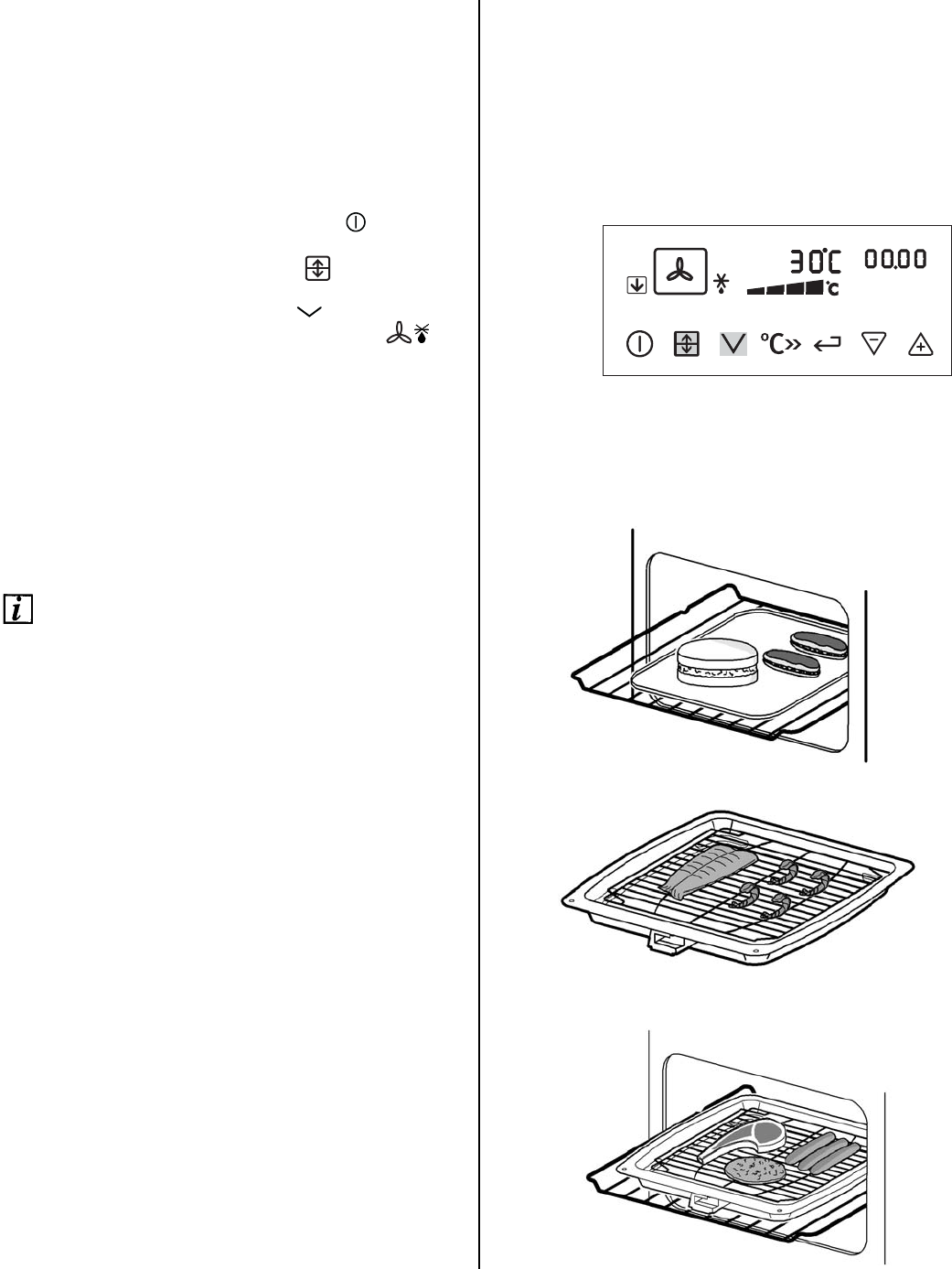
34
FAN CONTROLLED DEFROSTING
This main oven function enables you to defrost most
foods without heat faster than some conventional
methods as the oven fan circulates air around the
food. It is particularly suitable for delicate frozen
foods which are to be served cold e.g. cream filled
gateaux, cakes covered with icings or frostings,
cheesecakes, biscuits, scones, etc.
USING FAN CONTROLLED DEFROSTING
• The oven must be switched on ( ) before
setting any cooking function or programme.
• Press the Oven Cavity selector until the main
oven cavity indicator is illuminated.
• Press the Function selector until the Fan
Controlled Defrosting neon is illuminated.
• Wait 5 seconds until your choice is confirmed.
The temperature will automatically set to 30°C.
• To switch off a function simply press the Function
selector once. The function neon will go out and
the display will return to the time of day.
THINGS TO NOTE
• The oven fan and oven light will come on.
• The cooling fan does not operate.
HINTS AND TIPS
• Place the frozen food in a single layer where
possible and turn it over half way through the The
actual speed of defrosting is influenced by room
temperature. On warm days defrosting will be
faster than on cooler days.
• It is preferable to thaw fish, meat and poultry
slowly in the fridge. However, this process can
be accelerated by using the defrost function.
Small or thin fish fillets, frozen peeled prawns,
cubed or minced meat, liver, thin chops, steaks
etc., can be thawed in 1 – 2 hours.
• A 1kg/2¼lb oven ready chicken will be thawed in
approximately 5 hours. Remove the giblets as
soon as possible during the thawing process.
• Joints of meat up to 2kg/4½lb in weight can be
thawed using the defrost function.
• All joints of meat and poultry must be thawed
thoroughly before cooking.
• Always cook thoroughly immediately after
thawing.
• Do not leave food at room temperature once it is
defrosted. Cook raw food immediately or store
cooked food in the fridge, once it has been
cooled.
• Care must always be taken when handling foods
in the home. Always follow the basic rules of
food hygiene to prevent bacterial growth and
cross contamination when defrosting, preparing,
cooking, cooling and freezing foods.


















